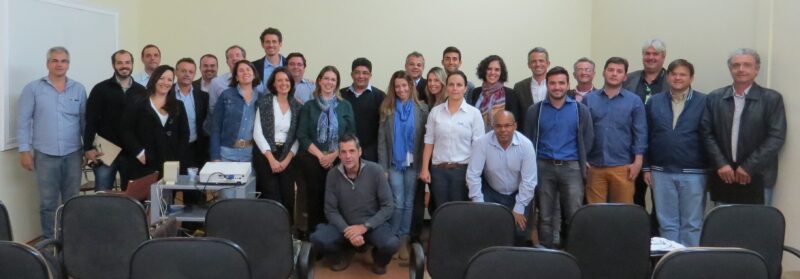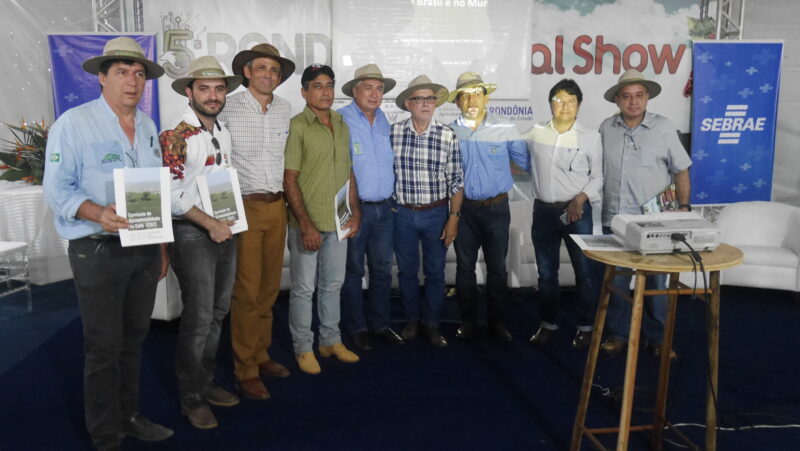Brazil National Advisory Board – on the move with the Global Coffee Platform


The Brazil National Advisory Board – the Brazilian version of the National Platform– kicked off in September 2014, consisting of senior management of roaster companies, national associations and government. The Board met in São Paulo on June 2nd, with full attendance and the participation of the Chairman of the GCP Board, Ted van der Put, Board Member Alexandre V. C. Monteiro, Annette Pensel, GCP Director of Sustainability Innovations, and Cornelis Hanssen, GCP Regional Operations Manager. The highlight of the meeting was the evolvement of the Global Coffee Platform through SCP – 4CA platform integration, as well as Vision 2020 that were addressed with Ted and Annette’s presentation followed by questions and answers. Another key topic was the validation of the Fundamental Items of the Coffee Sustainability Curriculum (CSC) that will be actively pursued by the GCP Brazil Program to advance sustainability with emphasis on small growers.

National Advisory Board meeting on June 2nd
The meeting also included the usual updates about the Program’s past, current and future activities. The session concluded with a vivid dialog between the foreign guests and NAB members. The discussion revolved around the DanWatch Report, especially perceptions in Brazil and abroad, by the Brazilian coffee business and the multinational industry, about ways to react to the report and future developments. The meeting was chaired by the Brazilian Program Coordinator, P&A’s Carlos Brando and Pedro Ronca, and attended by GCP’s Regional Manager Nathália Monéa.
The CSC Fundamental Items were also the main topic of the May 3rd meeting of the Brazil Working Group (BWG), which brings together technical representatives of the coffee extension services in the main coffee producing states, the sustainability standards active in Brazil, including the local Certifica Minas Café, roaster and trader members and NAB members. Out of the 122 items that integrate the Coffee Sustainability Curriculum, the BWG selected the 18 Fundamental Items that will be prioritized to accelerate the implementation of good sustainable agricultural practices in coffee producing areas of Brazil.

Brazil Working Group meeting on May 3rd
Institutional engagement and technical meetings apart, the bulk of GCP’s activities is grassroots, carrying out the program activities that comprise three main lines of work: rollout out of the Coffee Sustainability Curriculum, Train Technicians and Small Growers, and Effective Extension Service Delivery. Synergetic as the three lines are, they bring intense integration between government agencies, coffee business associations and the private sector, as shown by the participation of state extension services in Train-the-Trainers events and the partnership with the exporters’ association, CeCafé, in the Informed Coffee Grower Program.
The expansion of the GCP Brazil Program and its integration with the supply chain has been demanding intense participation in coffee events around the country, like Expocafé 2016, the largest coffee technical event and trade fair in Brazil and the 5th Rondônia Rural Show, the largest agribusiness event in Northern Brazil. The recovery of the coffee business in the state of Rondônia – whose Robustas are sought after by the industry – has embraced the Coffee Sustainability Curriculum and other GCP lines of work.

